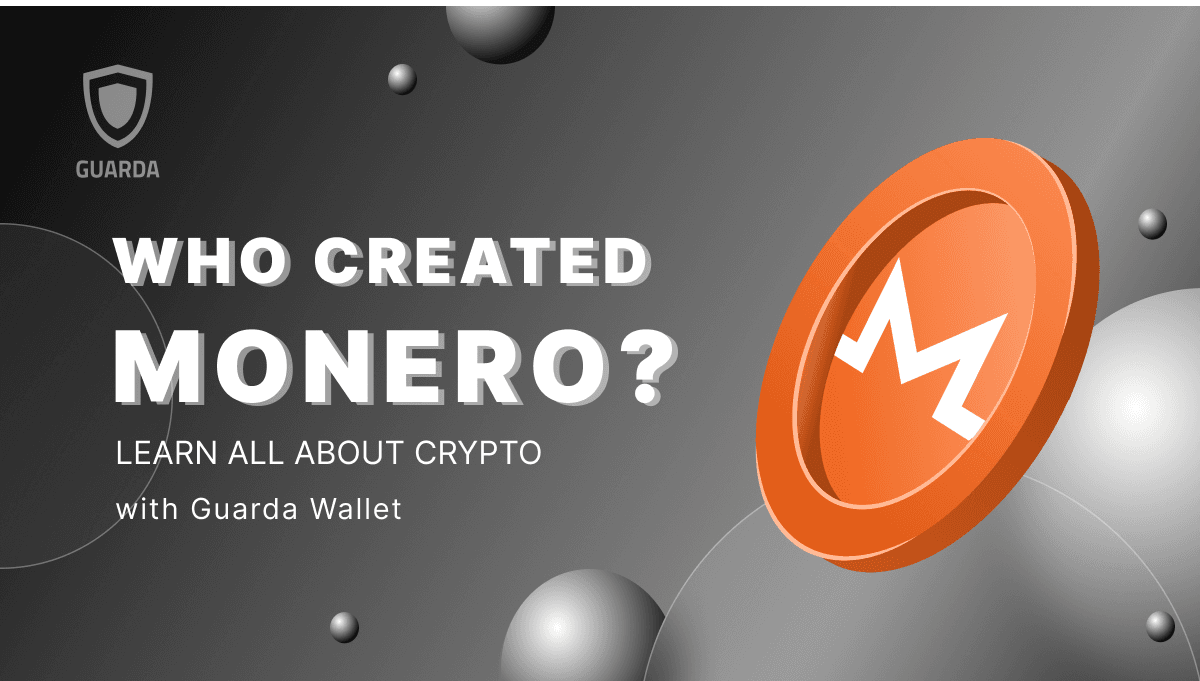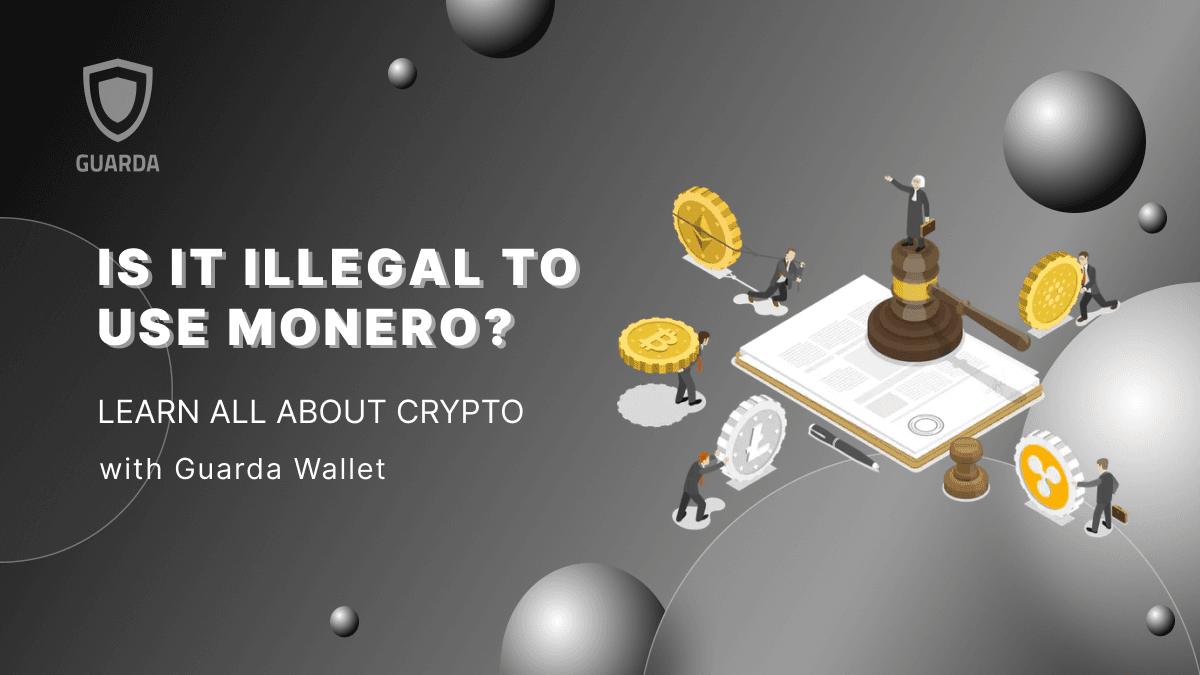In the dynamic world of cryptocurrencies, three major players— Bitcoin, Ethereum, and Litecoin — stand out due to their unique attributes, underlying technologies, and varying use cases. This article provides a detailed Litecoin vs. Bitcoin vs. Ethereum comparison for understanding their differences and potential impacts on the digital economy. We will also delve into and find out how to manage LTC, BTC, and ETH through a versatile non-custodial multi-coin Guarda wallet (https://guarda.com).
Bitcoin (BTC) - The Pioneer of Blockchain Technology
- Overview: Introduced in 2009 by an anonymous entity known as Satoshi Nakamoto, Bitcoin is the first cryptocurrency. It operates on a decentralized network blockchain tech. Its primary purpose is to offer a digital alternative to traditional currencies, acting as a store of value and a medium for transactions.
- Technology: Bitcoin’s blockchain relies on a consensus mechanism known as proof-of-work (PoW) to validate transactions. This process requires significant computational power and energy.
- Market Position: Bitcoin enjoys the highest liquidity and widespread recognition. It is referred to as digital gold due to its store of value and inflation-resistant properties.
Ethereum (ETH) - More Than Just a Currency
- Overview: Launched in 2015 by Vitalik Buterin and others, Ethereum extends beyond the financial use cases of Bitcoin by allowing developers to create dApps on its platform. It is a foundation for building blockchain-based applications.
- Technology: Ethereum currently uses a proof-of-work system similar to Bitcoin but is in the transition to proof-of-stake (PoS) through its Ethereum 2.0 upgrade. This transition is designed to reduce the network’s energy usage while enhancing transaction speed and expanding scalability.
- Market Position: Ethereum is widely regarded as the leading platform for smart contracts, enabling a multitude of applications including decentralized finance (DeFi), gaming, and collectibles.
Litecoin (LTC) - The Counterpart to Bitcoin’s Gold
- Overview: Introduced in 2011 by Charlie Lee, Litecoin is frequently dubbed the silver to Bitcoin’s gold. It was engineered to offer a streamlined and quicker alternative to Bitcoin, enhancing its suitability for frequent, smaller transactions.
- Technology: Utilizing the foundational blockchain technology of Bitcoin, Litecoin introduces modifications that boost transaction speed and decrease operational costs. It utilizes the Scrypt hashing algorithm, which is less demanding on resources compared to Bitcoin’s SHA-256.
- Market Position: Known for its rapid processing times and minimal transaction fees, Litecoin has carved out a niche for itself as a preferred choice for micro-transactions and everyday purchases, enhancing its appeal for everyday use.
Litecoin vs. Bitcoin vs. Ethereum: Key Differences
- Purpose and Functional Distinctions: Bitcoin is predominantly viewed as a digital equivalent to gold. Ethereum, on the other hand, acts as a development platform enhancing its utility beyond mere currency. Litecoin is designed to optimize transaction efficiency.
- Underlying Technologies and Consensus Protocols: Both Bitcoin and Litecoin operate on a proof-of-work (PoW) basis, but Litecoin’s adoption of the Scrypt algorithm facilitates quicker and more energy-efficient mining processes. Ethereum is transitioning to a proof-of-stake (PoS) model with its upcoming upgrades, aiming to improve network scalability and reduce its environmental footprint.
- Market Penetration and Network Adoption: Bitcoin is the most widely accepted cryptocurrency, recognized by numerous merchants globally as a legitimate form of payment. Ethereum’s popularity stems largely from its robust dApp ecosystem. Litecoin, while also accepted by a broad array of vendors, often remains in the comparative backdrop of Bitcoin’s extensive adoption.
Cryptocurrency Wallets on Guarda: Bitcoin, Ethereum, and Litecoin
Guarda Wallet provides a secure and user-friendly platform for managing key cryptocurrencies through Bitcoin wallet, Ethereum wallet, and Litecoin wallet.
- Users can buy LTC, ETH, and BTC, exchange, send, receive, and store coins in their digital wallets efficiently.
- Built-in trading (like LTC to BTC, ETH to BTC, etc.) and customizable transaction fees enhance the user experience during busy network times.
- Moreover, Ethereum staking capabilities allow users to earn ETH rewards by supporting network operations, particularly advantageous with the shift to proof-of-stake.
Whether you’re new to cryptocurrencies or looking to optimize your digital asset management, Guarda Wallet offers tailored, secure solutions with Bitcoin wallet, Ethereum wallet, and Litecoin wallet. Its blend of robust security features, multi-currency support, and user-friendly interfaces makes Guarda a top choice for managing and maximizing your cryptocurrency portfolio.
Get Your Crypto Wallet for Free
Conclusion
In the Litecoin vs. Bitcoin vs. Ethereum comparison, each of these coins has carved out its niche in the digital economy. Bitcoin remains a favored digital asset for long-term investment. Ethereum excels in enabling decentralized applications, ushering in a new paradigm of internet functionality. Litecoin offers an effective solution for everyday transactions. Understanding these differences is crucial for anyone looking to diversify into the world of digital currencies or leverage their unique advantages. Whether you are investing, developing, or simply exploring, recognizing the distinct roles of Bitcoin, Ethereum, and Litecoin will enhance your crypto literacy and decision-making in this fast-evolving field.



